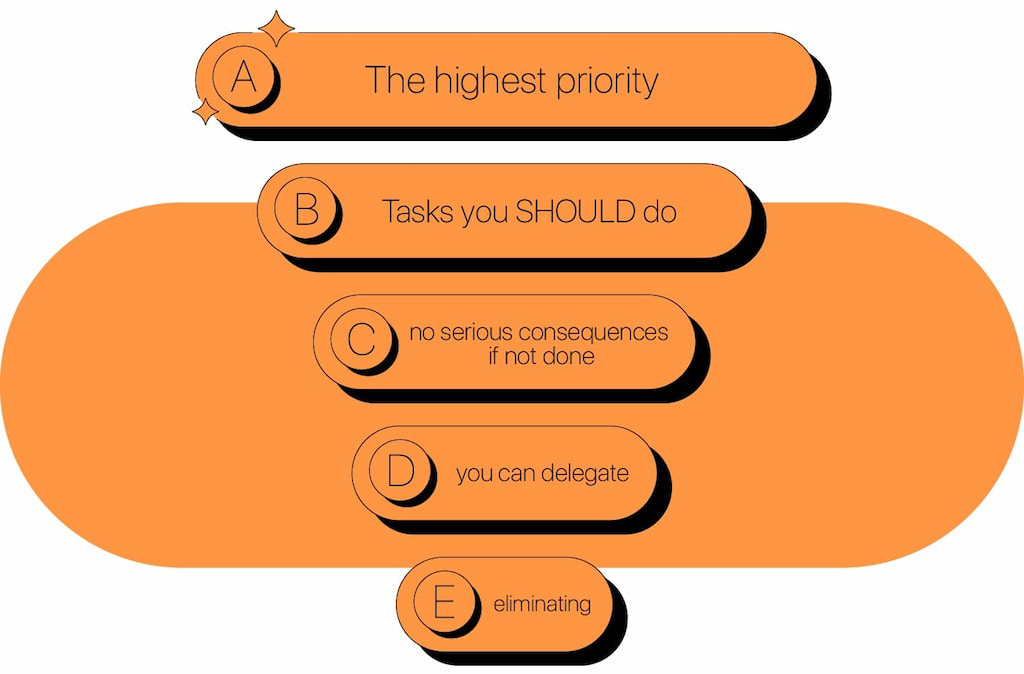Staying on top of tasks can feel like an uphill battle. From managing deadlines to juggling multiple projects, the demands of modern life can easily lead to overwhelm and disorganization. However, mastering task management skills is the key to reclaiming control and achieving success in both personal and professional realms. This article aims to unravel the complexities of task management strategies by providing valuable insights, practical tips, and effective strategies to help you tackle tasks with confidence and efficiency. We will equip you with the task management techniques and tips needed to thrive in today’s dynamic environment.
What Are Task Management Skills
Task management skills involve planning, prioritizing, and managing tasks at work to achieve specific objectives. These skills include setting goals, creating schedules, tracking progress, and ensuring tasks are completed on time and within scope.
Task management skills encompass a set of abilities and techniques that help individuals effectively organize, prioritize, and execute tasks. These skills are crucial in the workplace for several reasons:
- Improves productivity: Effective task management ensures that tasks are completed efficiently, reducing wasted time and effort.
- Enhances organization: With strong task management skills, individuals can keep their work organized, which helps in managing workloads, meeting deadlines, and avoiding chaos.
- Reduces stress: By having a clear plan and knowing what needs to be done, employees can reduce the stress associated with managing multiple tasks and deadlines.
- Promotes accountability: Task management helps in tracking progress and holding individuals accountable for their work.
- Facilitates better communication: Good task management often involves clear communication about deadlines, expectations, and progress.
- Supports goal achievement: By breaking down larger projects into manageable tasks, individuals can steadily work towards their objectives.
In summary, task management skills are vital in the workplace as they help in organizing work, improving productivity, reducing stress, promoting accountability, facilitating communication, and supporting goal achievement. These skills enable individuals and teams to work more efficiently and effectively, leading to better performance and success.
You can get help with your task management through several task management tools, among which a powerful time tracker Everhour stands on top.
Everhour is the top time tracker for SMB teams, including software developers, marketers, designers, consultants, lawyers, you name it! Seamlessly integrating with popular PM tools, its user-friendly interface and customizable reports make it the ultimate time tracking solution. With dedicated support, our team is here to help you promptly and with a smile!
Types of Task Management Skills
❗ Prioritization
- The ability to identify and rank tasks based on their importance and urgency.
- Prioritizing tasks ensures that crucial activities are addressed first, minimizing the risk of missing deadlines or neglecting essential responsibilities.
⌛ Time management
- Efficiently allocating time to tasks based on their priority and estimated duration.
- Time management skills involve setting realistic deadlines, avoiding procrastination, and allocating sufficient time for each task to prevent overcommitment.
📆 Organization
- Maintaining a structured approach to task management by organizing tasks, deadlines, and resources effectively.
- Organizational skills involve creating to-do lists, setting up task categories or folders, and establishing systems for storing and accessing relevant information.
🗣️ Communication
- Clear and effective communication is essential for coordinating tasks among team members, delegating responsibilities, and seeking clarification when needed.
- Communication skills include active listening, articulating expectations, providing feedback, and collaborating with others to ensure tasks are completed smoothly.
🤸♀️ Flexibility
- Adaptability is crucial in task management, as priorities may change, unforeseen challenges may arise, and new opportunities may emerge.
- Being flexible involves adjusting plans and strategies as needed, remaining open to alternative approaches, and embracing change to overcome obstacles and seize opportunities.
💡 Problem-solving
- The ability to identify obstacles, analyze situations, and develop creative solutions to overcome challenges.
- Problem-solving skills enable individuals to address issues proactively, anticipate potential problems, and find innovative ways to achieve goals despite setbacks.
🤝 Delegation
- Knowing when and how to assign tasks to others based on their skills, availability, and capacity.
- Delegation skills involve assessing team members’ strengths and weaknesses, providing clear instructions and expectations, and empowering others to take ownership of tasks.
👩⚖️ Accountability
- Taking responsibility for one’s actions, decisions, and outcomes related to task management.
- Accountability involves honoring commitments, meeting deadlines, and taking proactive steps to address any setbacks or shortcomings.
By honing these task management skills, individuals and teams can enhance their productivity, reduce stress, and achieve greater success in their personal and professional endeavors.
How to Improve Task Management Skills
Set clear objectives
Setting clear objectives is the cornerstone of effective task management. Without clear goals, it’s challenging to prioritize tasks and allocate resources efficiently. Here’s how to set clear objectives:
- Define specific goals: Clearly articulate what you want to achieve. Make sure your objectives are specific, measurable, achievable/attainable, relevant/realistic, and time-bound/tangible (SMART).

- Break down goals: Break down larger goals into smaller, actionable tasks. This makes them more manageable and helps you track progress more effectively.
- Communicate objectives: Ensure everyone involved understands the objectives. Clear communication fosters alignment and ensures everyone is working towards the same goals.
- Set milestones: Establish milestones to mark progress towards your objectives. Milestones provide checkpoints to assess progress and adjust plans if necessary.
- Regularly review objectives: Review and revise objectives regularly to ensure they remain relevant and aligned with changing priorities and circumstances.
Setting clear objectives provides clarity and direction, enabling you to focus your efforts on tasks that contribute to your overall goals.
Prioritize tasks
Prioritizing tasks is the best way to manage tasks. When faced with multiple tasks, it’s crucial to determine which ones require immediate attention and which can wait. Assessing the urgency and importance of each task helps in prioritizing effectively. Deadlines, impact on goals, and the ABC method (assigning priorities using labels like A, B, and C) are useful tools in this process.

Additionally, staying adaptable and open to changing priorities ensures that you can address emerging needs promptly. Prioritizing tasks allows you to focus your time and energy on what matters most, leading to increased productivity and goal achievement.
Use task management software
Task management software plays a vital role in organizing, prioritizing, and tracking tasks efficiently. With the help of task management software, such as Everhour, teams can streamline their workflow, collaborate seamlessly, and stay organized.
Benefits of using task management software
- Centralized task repository: Task management software provides a centralized platform where all tasks, deadlines, and project details are stored. This ensures that team members have easy access to relevant information, eliminating confusion and enhancing productivity.
- Task prioritization: Most task management software allows users to prioritize tasks based on urgency and importance. This feature enables teams to focus on high-priority tasks and allocate resources effectively.
- Deadline management: Task management software often includes deadline management features, allowing users to set due dates for tasks and receive notifications as deadlines approach.
- Collaboration tools: Many task management tools offer collaboration features such as file sharing, comments, and @mentions, facilitating communication and collaboration among team members.
- Time tracking integration: Task management software integrates with time tracking tools, allowing teams to track the time spent on each task accurately. This helps in monitoring productivity, identifying bottlenecks, and optimizing workflow efficiency.
- Customization options: Task management software often provides customization options, allowing users to tailor the software to their specific workflow and preferences.
Break tasks into manageable steps
Breaking tasks into smaller, more manageable steps is one of the key effective task management strategies. This approach involves dividing a large, complex task into smaller, more achievable components. By focusing on one small step at a time, you can maintain momentum and make steady progress. Here’s how to effectively break down your tasks:
- Identify the main task: Clearly define the overall objective you need to achieve.
- List all necessary steps: Write down every action required to complete the main task. Be as detailed as possible.
- Prioritize steps: Determine which steps need to be completed first and which can be done later. This helps in organizing your workflow.
- Set deadlines: Assign realistic deadlines to each step to ensure steady progress and timely completion.
- Track progress: Regularly monitor the completion of each step. This keeps you motivated and provides a clear view of your advancement.
- Adjust as needed: Be flexible and adjust the steps or deadlines if unforeseen challenges arise.
Breaking tasks into manageable steps not only makes the workload seem less daunting but also helps in maintaining focus, improving efficiency, and achieving better results.
Monitor and adjust deadlines
Effective task management involves setting realistic deadlines and regularly monitoring progress towards them. By keeping a close eye on deadlines, you can identify any potential delays or obstacles and make adjustments as needed to ensure timely completion of tasks. This proactive approach helps to minimize stress and ensures that projects stay on track. To effectively monitor and adjust deadlines:
- Use task management tools: Utilize task management software or tools to set deadlines, track progress, and receive notifications when deadlines are approaching or at risk.
- Regularly review deadlines: Schedule regular reviews of your task deadlines to assess progress and identify any potential issues or delays.
- Communicate proactively: If you anticipate a deadline may be at risk, communicate proactively with stakeholders or team members to discuss potential solutions or adjustments.
- Adjust accordingly: Based on your review and assessment, adjust deadlines as needed to ensure that tasks remain on track and aligned with project goals and objectives.
By monitoring and adjusting deadlines proactively, you can optimize task management, maintain project timelines, and ensure successful project delivery.
Collaborate with teammates
By working together with colleagues, team members, and stakeholders, you can leverage collective expertise, share resources, and achieve better outcomes. Collaboration fosters creativity, innovation, and synergy, leading to more effective task management and project success. A few tips on how to maximize collaboration with your teammates:
- Open communication channels: Establish open and transparent communication channels to facilitate collaboration. Use tools like Slack, Microsoft Teams, or your PM tool’s integrated chat to communicate seamlessly with team members, share updates, and discuss tasks.
- Encourage brainstorming sessions: Foster a culture of creativity and innovation by hosting brainstorming sessions where team members can freely share ideas, provide feedback, and explore different approaches to solving problems or achieving project goals.
- Utilize collaboration tools: Leverage collaboration tools and platforms such as Google Workspace, Trello, or Asana to streamline teamwork, track task progress, and coordinate real-time efforts.
- Promote knowledge sharing: Encourage knowledge sharing and skill development within your team by organizing training sessions, sharing best practices, and providing opportunities for mentorship and peer learning. Create a culture of continuous improvement where team members feel empowered to share their knowledge and expertise.
- Celebrate achievements: Whether it’s a successful project delivery, a key milestone reached, or a significant team accomplishment, take the time to acknowledge and celebrate the collective efforts of your team.
Create an effective schedule
Creating an effective schedule is essential for effective task management. By carefully planning and organizing your time, you can prioritize tasks, allocate resources efficiently, and ensure that important deadlines are met. A well-designed schedule helps you stay focused, productive, and in control of your workload. Here’s how to create a schedule that works for you:
- Identify priorities: Start by listing all the tasks you need to complete. Identify which tasks are urgent and important, and prioritize them accordingly.
- Allocate time blocks: Use a time-blocking template and divide your day into time blocks dedicated to specific tasks or types of work. For example, you might allocate the morning to high-priority tasks and the afternoon to meetings or administrative work.
- Set realistic deadlines: Assign deadlines to each task, but be realistic about how much time each will take. Overestimating your capacity can lead to stress and burnout, while underestimating can result in missed deadlines.
- Include breaks: Schedule regular breaks to rest and recharge. Short breaks between tasks can boost productivity and help you maintain focus throughout the day.
- Use tools and apps: Utilize scheduling tools and apps to keep track of your tasks and deadlines. Digital calendars, to-do lists, and project management software can provide reminders and help you stay organized.
- Plan for contingencies: Include buffer time in your schedule for unexpected tasks or delays. This helps you stay on track even when things don’t go as planned.
Learn to say no
Multitasking can be counterproductive and lead to decreased efficiency and increased stress. Instead of trying to juggle multiple tasks simultaneously, focus on one task at a time and give it your full attention. Additionally, learning to say no to non-essential tasks or commitments helps you maintain focus on your priorities and prevents overextension.

Multitasking, once hailed as a productivity booster, can actually decrease efficiency and quality of work. Instead, focus on one task at a time to enhance productivity and reduce stress.
By avoiding multitasking and learning to say no to excessive commitments, you can improve your productivity, reduce stress, and achieve better results in your work and personal life.
Don’t forget to rest
Rest and relaxation are essential components of effective task management. Failing to take breaks can lead to burnout, decreased productivity, and compromised well-being. How you can prioritize rest:
- Importance of rest: Rest is not a luxury; it’s a necessity for maintaining mental and physical health. Taking breaks allows your brain to recharge, improves focus and concentration, and enhances overall productivity.
- Schedule regular breaks: Incorporate short breaks into your workday to rest and recharge. Schedule brief pauses between tasks or set a timer to remind yourself to take periodic breaks. Use these breaks to stretch, walk around, or engage in relaxation techniques.
- Practice the Pomodoro technique: The Pomodoro Technique involves working in focused intervals, typically 25 minutes, followed by a short break. After completing four intervals, take a longer break to rest and rejuvenate before resuming work.
- Prioritize sleep: Adequate sleep is crucial for cognitive function, mood regulation, and overall well-being. Aim for seven to nine hours of quality sleep each night to support optimal performance and productivity during the day.
- Engage in leisure activities: Make time for hobbies and activities that bring you joy and relaxation outside of work. Whether it’s reading, exercising, spending time with loved ones, or pursuing creative interests, prioritizing leisure activities helps counteract the stress of work.
- Set work-life boundaries: Establish clear boundaries between work and personal time to prevent overwork and burnout. Resist the temptation to check work emails or messages during non-working hours and dedicate time to activities that replenish your energy and happiness.
- Listen to your body: Pay attention to physical and mental signs of fatigue, such as decreased concentration, irritability, or physical tension. When you notice these signs, take them as cues to pause, rest, and recharge before continuing with your tasks.
Remember that rest is not a sign of weakness but a vital component of sustainable productivity and well-being. By prioritizing rest and incorporating regular breaks into your task management routine, you can optimize your performance, creativity, and overall quality of life.
Develop organizational skills
Organizational skills are essential for effective task management. By developing strategies for managing information, resources, and priorities, you can streamline your workflow, reduce clutter, and increase efficiency. Organizational skills enable you to stay on top of your tasks, meet deadlines, and achieve your goals.
Adopt Agile methodologies
Agile methodologies offer a flexible and iterative approach to task management, allowing teams to adapt quickly to changing requirements and priorities. Adopting Agile methodologies or using Agile tools can significantly improve task management and project outcomes by promoting flexibility, collaboration, and iterative development. Here’s how you can incorporate Agile principles into your workflow:
- Embrace iterative planning: Break projects into smaller, manageable chunks known as iterations or sprints. Prioritize tasks based on customer value and tackle them in short, focused cycles.
- Encourage collaboration: Foster open communication, knowledge sharing, and transparency to ensure everyone is aligned on project goals and priorities. Hold regular stand-up meetings or daily scrums to discuss progress, blockers, and action items.
- Focus on delivering value: Align project efforts with customer needs and business objectives by focusing on delivering tangible value in each iteration. Define clear user stories or requirements that address specific user needs or pain points.
- Adapt to change: Regularly reassess project priorities and adjust plans as needed to maximize value delivery. Use retrospective meetings to reflect on lessons learned and identify opportunities for improvement.
- Empower self-organizing teams: Empower teams to self-organize and make decisions collaboratively, rather than relying on top-down direction. Encourage autonomy, creativity, and accountability among team members, allowing them to take ownership of their work and drive innovation. Provide support and resources as needed to enable teams to succeed.
- Use visual management tools: Utilize visual management tools such as Kanban boards or Scrum boards to track progress, visualize workflow, and manage tasks effectively. These tools provide real-time visibility into project status, allowing teams to identify bottlenecks, prioritize work, and maintain a steady flow of value delivery.
- Iteratively improve processes: Conduct regular retrospectives to assess what went well, what didn’t, and how to make adjustments for future iterations. Experiment with new practices, tools, and techniques to optimize team productivity and collaboration.
Task Management Skills: Conclusion
In conclusion, mastering task management skills is crucial for personal and professional success.Self-awareness, discipline, and ongoing learning are essential for continuous improvement in this area. With dedication and perseverance, individuals can develop the expertise needed to excel in managing tasks and projects effectively.
Whether you’re a student, professional, or entrepreneur, mastering task management skills is a valuable investment in your future success. By applying the principles outlined, you can take control of your workload, reduce stress, and achieve greater productivity and satisfaction in your endeavors.

